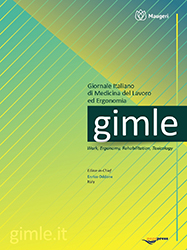A FOLLOW-UP STUDY ON THE REDUCTION OF BURNOUT LEVELS THROUGH MINDFULNESS MEDITATION IN HEALTH CARE PROFESSIONALS
All claims expressed in this article are solely those of the authors and do not necessarily represent those of their affiliated organizations, or those of the publisher, the editors and the reviewers. Any product that may be evaluated in this article or claim that may be made by its manufacturer is not guaranteed or endorsed by the publisher.
Authors
The 8-week mindfulness meditation (MM) trainings have proven to be helpful for reducing burnout due to work-related stress. Most studies reported these positive effects with evaluations made immediately before and immediately after the therapeutic interventions. Little is known, however, about the symptoms of burnout in the months following these interventions.
In our exploratory study, the effects of an 8-week MM training were assessed in a group of health care professionals (n = 19) with vulnerability to develop burnout; a 9-month follow-up was conducted on the subjects (n=8) who continued to meditate after the end of the training. Other health care professionals of the same company, who did not meditate during this research, served as control group. Burnout, mindfulness abilities and job satisfaction were evaluated through self-reports.
Data showed that during the training the levels of burnout did not decrease, but significant reductions were observed during the follow-up. This indicates the possibility of obtaining results with MM even in subjects who do not have standard response time to the therapy and highlights the importance of monitoring the healing process.
How to Cite

This work is licensed under a Creative Commons Attribution-NonCommercial 4.0 International License.
PAGEPress has chosen to apply the Creative Commons Attribution NonCommercial 4.0 International License (CC BY-NC 4.0) to all manuscripts to be published.






